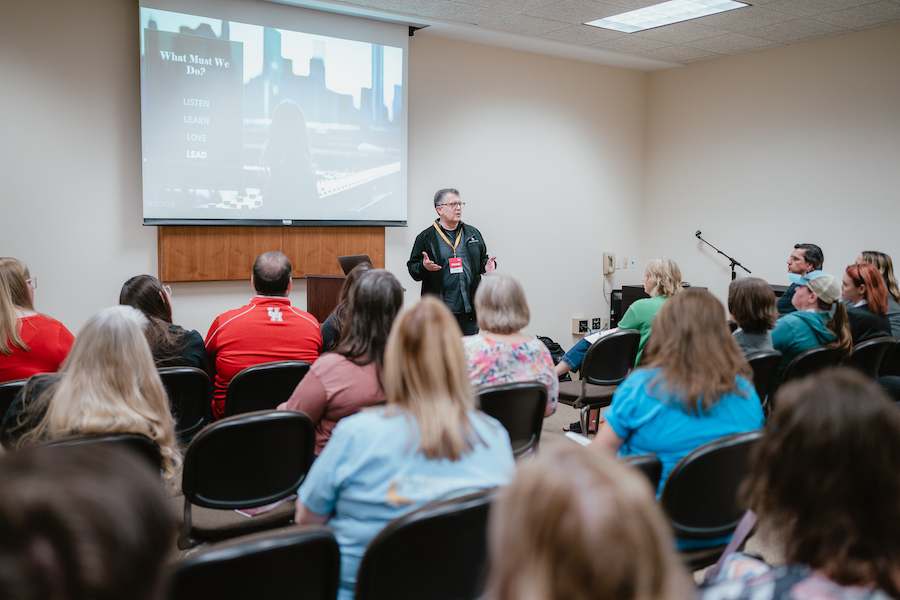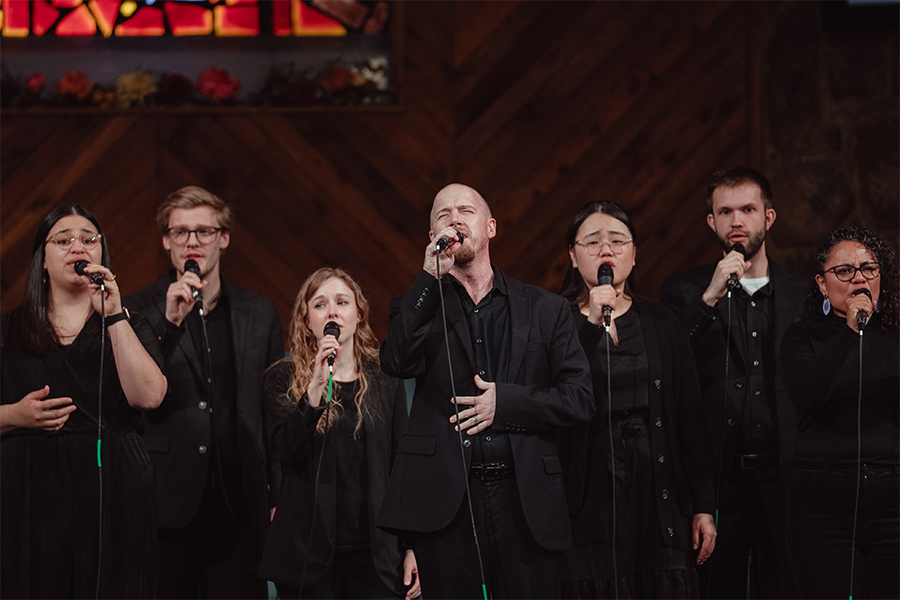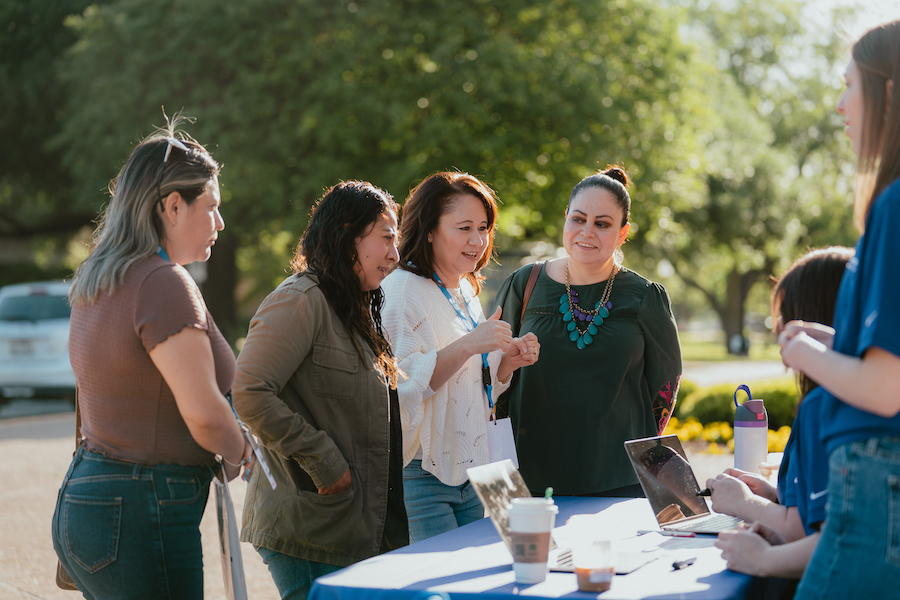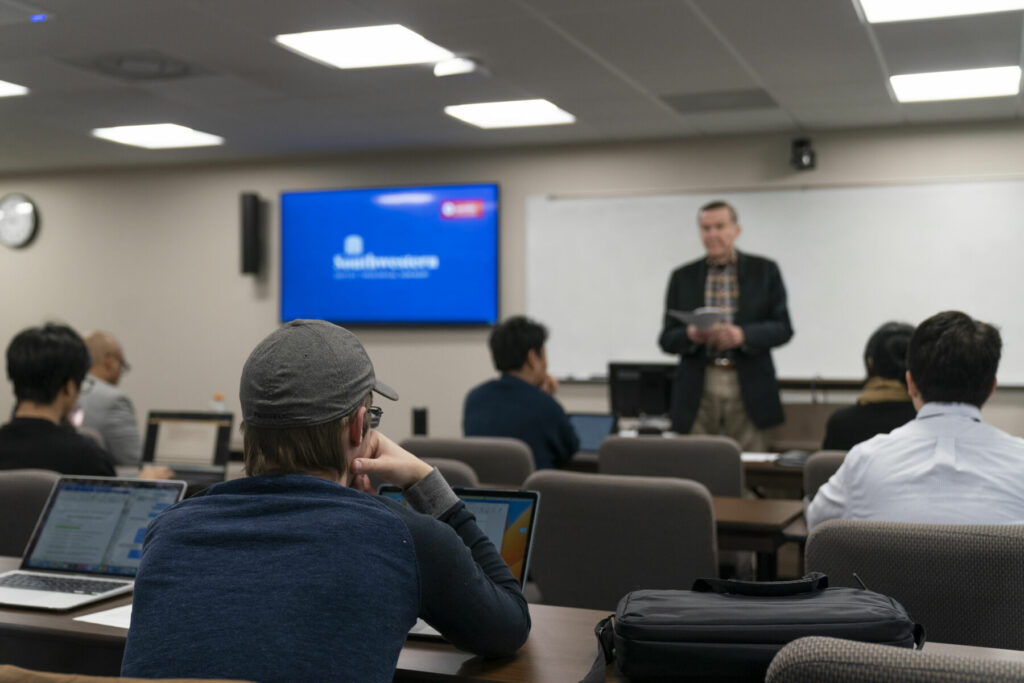‘Southwestern tradition’ of theological education ‘worthy of imitation,’ Dockery says in Founder’s Day address
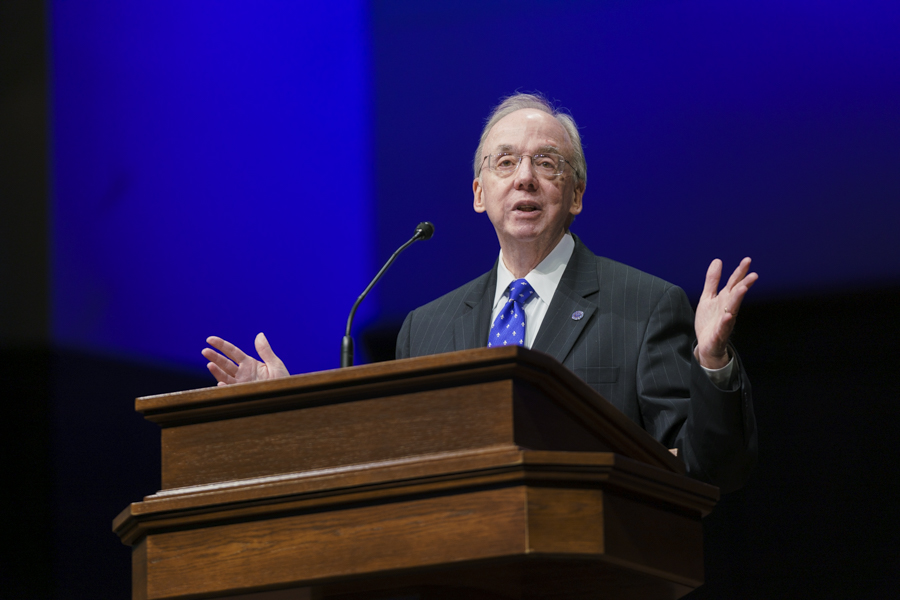
The “Southwestern tradition” of theological education begun by founder and first president B.H. Carroll is “worthy of imitation” by today’s Southwestern Baptist Theological Seminary community, Interim Provost David S. Dockery said during the seminary’s Founder’s Day chapel, March 10.
In his introduction to the chapel service on the Fort Worth campus, President Adam W. Greenway explained that Founder’s Day, which had not been observed in recent years, historically has been celebrated at Southwestern Seminary during the chapel service closest to the day on which the seminary was chartered, March 14, 1908.
“Five score and 13 years ago,” Greenway said, “our founder, B.H. Carroll, brought forth a new institution that was committed to preserving and perpetuating the best of the first seminary of Southern Baptists, but that also would perpetuate a new vision for theological education….” Owned and operated today by the churches of the Southern Baptist Convention, Greenway said Carroll’s vision was of a seminary “committed to the tasks not just of biblical, theological, historical study, but practical training for the equipping of the saints, for the edification of the church, and for the glory of our Lord and Savior Jesus Christ.”
Greenway said he had been looking forward to celebrating this day since he was elected president in February 2019. Though he hoped to celebrate it last year, “it became one of the first victims of the global pandemic known as COVID-19,” he said.
In his address, Dockery, a 1981 Master of Divinity graduate of Southwestern who also serves as distinguished professor of theology, among other roles at the institution, reviewed the context in which the seminary was founded, the contributions of B.H. Carroll to Texas Baptist life and to Southwestern Seminary, and the implementation of Carroll’s vision in the 113 years since the institution’s founding.
“We do this not as a history lesson, not just to look back and long for better days gone by, but to recognize what God has done and the privilege He has given to us to stand on the shoulders of those who have gone before us,” Dockery said. “And today we want to celebrate the distinctive Southwestern tradition with thanksgiving in our hearts for what God has done.”
Speaking of Carroll, who died in 1914, Dockery said, “Though he only served as president for six years, and a few of those in less than good health, he had established a seminary committed to historic orthodoxy and denominational unity, characterized by a generous spirit of cooperation. Moreover, the seminary was known for its convictions regarding the transformational power of the Gospel, the full truthfulness of Scripture, and a pioneering spirit.
“The seminary’s founding president emphasized the importance of students having a thorough knowledge and understanding of the English Bible, while connecting the seminary’s purpose to the churches.”
This notion of theology being tied to practical application in the churches has remained an integral part of the “Southwestern tradition” ever since, Dockery said, noting that the “best aspects” of this tradition “have attempted to connect together theology, theological education, the life and work of the church, and the commission to take the Gospel to the nations.”
“Theological education in the Southwestern tradition has rendered service to the churches in numerous ways,” Dockery said. “The tradition has enabled believers to know God so as to help them proclaim and serve the living Christ. It has strengthened the church’s teaching, evangelistic, missiological, and apologetic tasks. These efforts have served as a touchstone for understanding what the church believes and for recognizing the principles by which the allegiance of its members will be judged. Such beliefs and practices come from serious theological reflection.”
Throughout his address, Dockery cited numerous members of Southwestern’s faculty who have upheld this tradition while implementing Carroll’s vision, noting that the “admirable and aspirational purpose” of bringing theology into the church—rather than merely reserving it for the “specialists”—connected the founder with L.R. Scarborough; W.T. Conner with T.B. Maston; and James Leo Garrett Jr., Bill Tolar, Jack MacGorman, and Huber Drumwright with Roy Fish, Oscar Thompson, Cal Guy, T.W. Hunt, and Jack Terry—among many others.
“And it is that distinctive tradition which is worthy of imitation by this generation of Southwesterners,” Dockery said.
He concluded that “a greater appreciation for the Southwestern tradition provides for us a valuable accumulation of enduring insights.”
“Thus, theological education on this campus done in service for the people of God will always have one eye on the paths and trajectories that have been established by previous generations of Southwesterners, including their pioneering and innovative spirit.”
“On this Founder’s Day,” he said, “as we offer heartfelt gratitude for the work of God through theological education in service to the people of God at this seminary since 1908, let us recommit ourselves afresh to celebrate, reclaim, and advance this wonderful heritage as we are given the privilege to ‘tell the generations following’ [Psalm 78:4].”
In the spirit of Founder’s Day, Greenway announced during chapel the publication of The B. H. Carroll Pulpit, a collection of 40 sermons and addresses by Carroll from his time as pastor of the First Baptist Church of Waco and president of Southwestern Seminary. Published by Seminary Hill Press (SHP), the publishing arm of Southwestern Seminary, the book is the second volume in SHP’s Legacy Series, following last year’s release of Baptists and the Bible by L. Russ Bush and Tom J. Nettles.

Greenway, the book’s editor, said the work is his “small way of trying to help tell the Carroll story again, afresh and anew, for our generation, because if not for B.H. Carroll, there would be no Southwestern Seminary today.”
